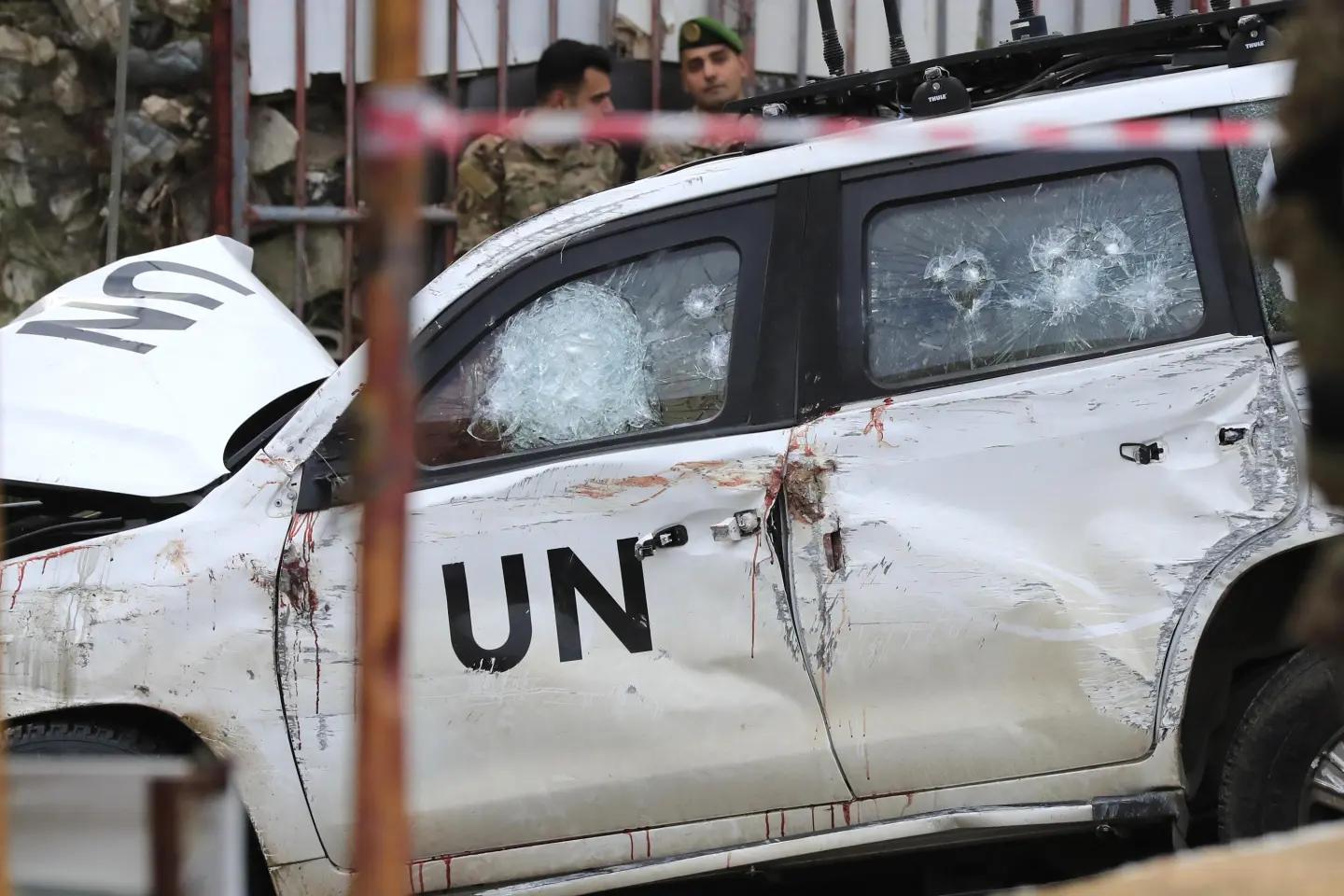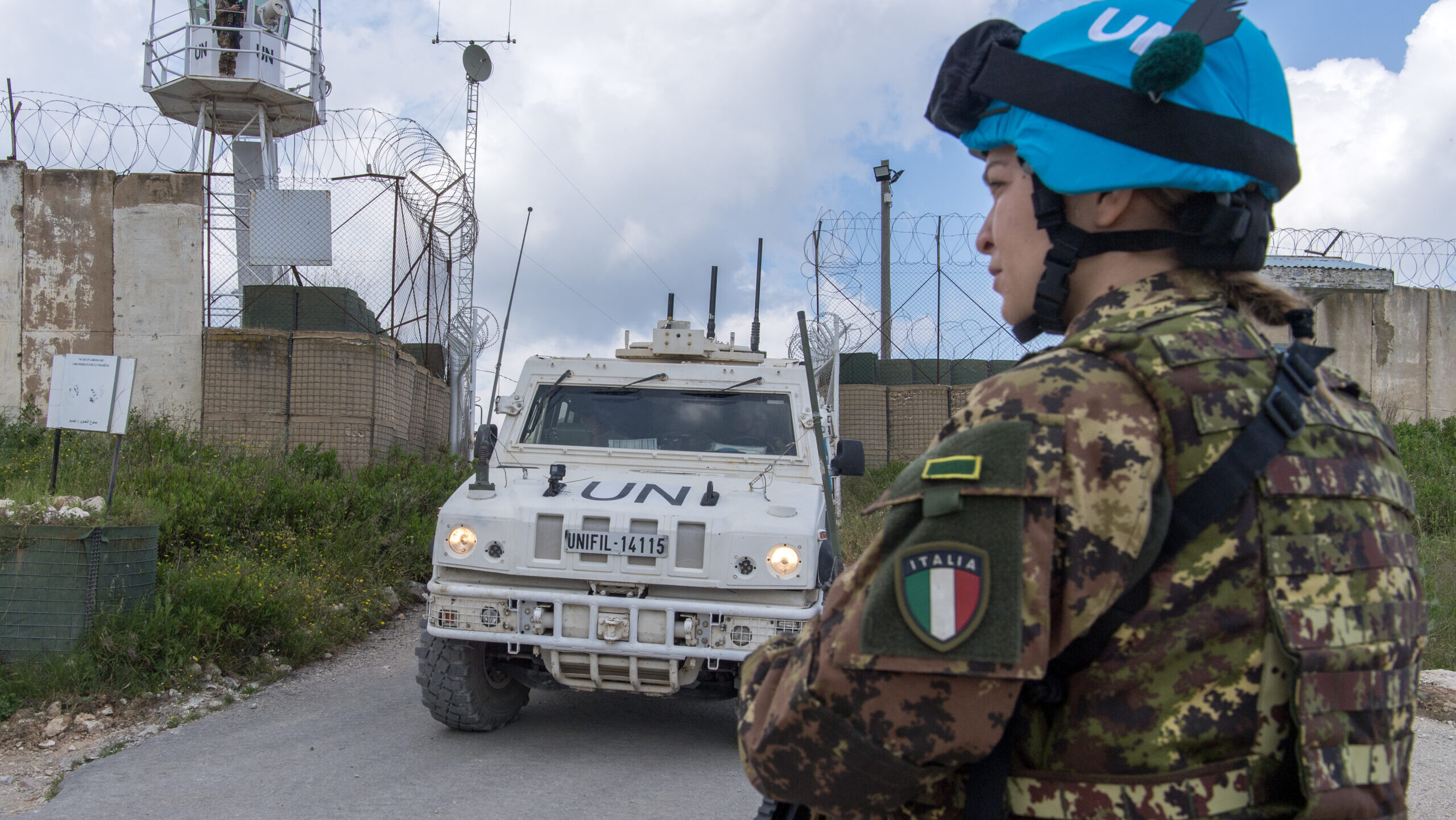International Peacekeepers Day: Rising Tensions Between Hezbollah and Israel Raise Questions About UNIFIL’s Role
Despite being founded to maintain peace and security on the border between Israel and Lebanon, UNIFIL has failed to rein in violence from Hezbollah
As international actors debate the legitimacy of Israel’s operation in Gaza, the war on Israel’s northern front rages on. Deaths from the Israel-Hezbollah conflict are continuing to rise, and over 100,000 Israelis are still evacuated from their homes in northern Israel, leading some to question the efficacy of the UN peacekeeper force meant to maintain security in southern Lebanon.
After the Israeli army finished a military operation against the Palestine Liberation Organization (PLO) in Lebanon in 1978, the UN established a temporary peacekeeping force known as the United Nations Interim Forces in Lebanon (UNIFIL). The body was meant to restore international peace and security and to assist Lebanon’s government and army in restoring control of the border with Israel. Israel’s 1978 invasion pushed the PLO north of the Litani River, about 18 miles from the border, in order to limit attacks against Israel. Despite the establishment of UNIFIL as a peacekeeper force, Israel returned to Lebanon in 1982. In 2006, another conflict broke out between Israel and Hezbollah, a Lebanese Shiite group with ties to Iran. After 34 days of fighting between Hezbollah and Israel in 2006, the UN brokered a cease-fire. Under the agreement, UN Security Council Resolution 1701, Israel and Hezbollah agreed to cease hostilities, and UNIFIL was tasked with ensuring that no armed groups other than itself and the Lebanese army operated south of the Litani River.
Today, UNIFIL comprises more than 10,000 soldiers from 49 nations. In addition to monitoring the border, the organization also provides humanitarian assistance to civilians affected by the exchange of fire in southern Lebanon.
“Before Oct. 7, we were able to guarantee the overall stability of the southern border for years, and this was clearly a success,” Andrea Tenenti, spokesperson for the UNIFIL mission, told The Media Line. “We played an active role. In fact, we have helped the Lebanese army, starting from 2008, to regain control of the southern part of the country.”
Despite UNIFIL’s successes, Hezbollah has grown stronger in southern Lebanon since 2006, especially in the towns and villages along the 75-mile-long demarcation line, leading some to criticize UNIFIL as ineffective. Since Oct. 7, as constant clashes between Hezbollah and Israel have plagued southern Lebanon and northern Israel, those criticisms have grown louder.
The UNIFIL mission started with very weak points and ended up being more of a cease-fire resolution than a peacekeeping one. They do not possess the tools and permission from the UN to confiscate weapons or even arrest those affiliated with [Hezbollah].
“The UNIFIL mission started with very weak points and ended up being more a cease-fire resolution than a peacekeeping one,” Hanin Ghaddar, a senior fellow at the Washington Institute, told The Media Line. She noted that the forces mostly report violations.

UNIFIL peacekeepers from the Republic of Korea conduct a vehicle patrol in the vicinity of Tyre, south Lebanon, February 21, 2024. (Pasqual Gorriz/UN)
“They do not possess the tools and permission from the UN to confiscate weapons or even arrest those affiliated with” Hezbollah, she said.
This holiday season, give to:
Truth and understanding
The Media Line's intrepid correspondents are in Israel, Gaza, Lebanon, Syria and Pakistan providing first-person reporting.
They all said they cover it.
We see it.
We report with just one agenda: the truth.


Tenenti characterized UNIFIL as “the only ones who can mediate properly” amid the rising tensions, noting that the group had arranged meetings between the Israeli and Lebanese armies.
UNIFIL does not only monitor the conflict between Hezbollah and Israel—at times, it finds itself caught up in that contact. Among other incidents, a car bomb killed six UNIFIL personnel in 2007, and in October, two mortar shells of undetermined origin hit a UNIFIL base, injuring one peacekeeper.
It is never an accident when UNIFIL personnel is targeted because the militant group aims to send a message both to the countries that serve in these forces and to the UN: Do not interfere with our activities in the southern part of the country.
“Hezbollah targets UNIFIL because they do not want another actor in the south,” Ghaddar explained. “It is never an accident when UNIFIL personnel is targeted because the militant group aims to send a message both to the countries that serve in these forces and to the UN: Do not interfere with our activities in the southern part of the country.”
Avraham Levine, a speaker at the northern Israel-based Alma Research and Education Center, told The Media Line that Hezbollah has more control over UNIFIL than UNIFIL does over Hezbollah.
There are areas where UNIFIL personnel cannot go to, and if they end up by mistake in Hezbollah’s territory, they are attacked on the spot, their vehicles are burnt, and sometimes they are even shot down.
“There are areas where UNIFIL personnel cannot go to, and if they end up by mistake in Hezbollah’s territory, they are attacked on the spot, their vehicles are burnt, and sometimes they are even shot down,” he said.

A damaged United Nations car. (Courtesy Alma Research and Education Center)
Levine also said that Hezbollah uses UNIFIL bases for its military purposes.
“Both in 2006 and in further operations that Israel carried against Hezbollah, the militants used UNIFIL compounds as shields for their operations in order to stop Israel’s counterattacks against a UN base,” he said.
One of the rockets launched at Israel by Hezbollah in December originated just 20 yards from a UNIFIL compound.
Levine said that the Lebanese army’s lack of action to rein in Hezbollah relates to the Shia sympathies of many of the soldiers as well as the interest in avoiding another Lebanese civil war.
Describing both UNIFIL and the Lebanese army as ineffective deterrents to Hezbollah, he said that Israel may have to invade Lebanon once again. “We cannot risk another Oct. 7 in the northern part of Israel since [Hezbollah Secretary-General Hassan] Nasrallah publicly claimed his goal to invade the Galilee. Even if this scenario is not pleasant for both sides, we may need to stop Hezbollah by entering Lebanon as we did in the past,” he said.
In the event that a full-scale war between Israel and Hezbollah does break out, UNIFIL may be a target, Ghaddar said. “Maybe this may push to reconsider its mission in the first place,” he speculated.
Giorgia Valente is a recent graduate of Ca’ Foscari University of Venice and an intern in The Media Line’s Press and Policy Student Program.

